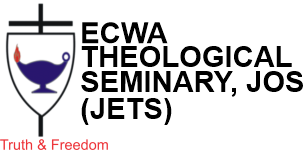Child and adolescent development for educators / Christine B. McCormick, David G. Scherer.
By: McCormick, Christine B [author.].
Contributor(s): Scherer, David G [author.].
Material type: BookPublisher: New York : The Guilford Press, 2018Edition: Second edition.Description: xiii, 496 pages ; 27 cm.Content type: text Media type: unmediated Carrier type: volumeISBN: 9781462534692 (hardcover : alk. paper); 9781462534685 (paperback : alk. paper).Subject(s): Child development | Adolescence | Cognition in children | Cognition in adolescence | Child psychology | Adolescent psychology | EDUCATION / Educational Psychology | PSYCHOLOGY / Developmental / Child | PSYCHOLOGY / Developmental / AdolescentDDC classification: 370.15/1 Other classification: EDU009000 | PSY004000 | PSY002000
BookPublisher: New York : The Guilford Press, 2018Edition: Second edition.Description: xiii, 496 pages ; 27 cm.Content type: text Media type: unmediated Carrier type: volumeISBN: 9781462534692 (hardcover : alk. paper); 9781462534685 (paperback : alk. paper).Subject(s): Child development | Adolescence | Cognition in children | Cognition in adolescence | Child psychology | Adolescent psychology | EDUCATION / Educational Psychology | PSYCHOLOGY / Developmental / Child | PSYCHOLOGY / Developmental / AdolescentDDC classification: 370.15/1 Other classification: EDU009000 | PSY004000 | PSY002000 | Item type | Current location | Call number | Status | Date due | Barcode |
|---|---|---|---|---|---|
 Books
Books
|
Byang Kato Research Library | LB1115 .M26 2018 (Browse shelf) | Available | 1043412 |
Includes bibliographical references and index.
Machine generated contents note: I. Theoretical Perspectives in Child Development 1. Introduction to Child Development and Education 2. Biological Development 3. Cognitive Development: Piaget's Stage Theory 4. Cognitive Development: Information-Processing Theory 5. Social Theories of Development and Learning 6. Sociocultural Theories of Development and Education II. Key Topics in Child Development and Education 7. Language Development and Linguistic Diversity 8. Intelligence and Individual Differences in Academic Competence 9. The Development of Academic Motivation 10. Family and Peer Relationships 11. Gender Role Development 12. Recognizing and Understanding Student Mental Health Problems 13. Integrative Review of Major Concepts References Index.
""This accessible text--now revised and updated--has given thousands of future educators a solid grounding in developmental science to inform their work in schools. The expert authors review major theories of development and their impact on educational practice. Chapters examine how teaching and learning intersect with specific domains of child and adolescent development--language, intelligence and intellectual diversity, motivation, family and peer relationships, gender roles, and mental health. Pedagogical features include chapter summaries, definitions of key terms, and boxes addressing topics of special interest to educators. Instructors requesting a desk copy receive a supplemental test bank with objective test items and essay questions for each chapter. (First edition authors: Michael Pressley and Christine B. McCormick.) New to This Edition: Extensively revised to reflect a decade's worth of advances in developmental research, neuroscience, and genetics. Greatly expanded coverage of family and peer relationships, with new content on social-emotional learning, social media, child care, and early intervention. Discussions of executive function, theory of mind, and teacher-student relationships. Increased attention to ethnic-racial, gender, and LGBT identity development. Many new and revised practical examples and topic boxes""-- Provided by publisher.
""This accessible text--now revised and updated--has given thousands of future educators a solid grounding in developmental science to inform their work in schools. The expert authors review major theories of development and their impact on educational practice. Chapters examine how teaching and learning intersect with specific domains of child and adolescent development--language, intelligence and intellectual diversity, motivation, family and peer relationships, gender roles, and mental health. Pedagogical features include chapter summaries, definitions of key terms, and boxes addressing topics of special interest to educators. Instructors requesting a desk copy receive a supplemental test bank with objective test items and essay questions for each chapter. (First edition authors: Michael Pressley and Christine B. McCormick.) Key Words/Subject Areas: teachers, education, developmental psychology, child development, childhood development, adolescent development, schoolchildren, adolescents, students, educational psychology, developmental theories, teaching methods, learning, biological development, cognitive development, social development, emotional development, language development, intelligence, academic motivation, family relationships, peer relationships, mental health problems, gender roles, social-emotional learning, texts, textbooks Audience: Instructors and graduate students in education, child and family studies, and school psychology""-- Provided by publisher.

There are no comments for this item.